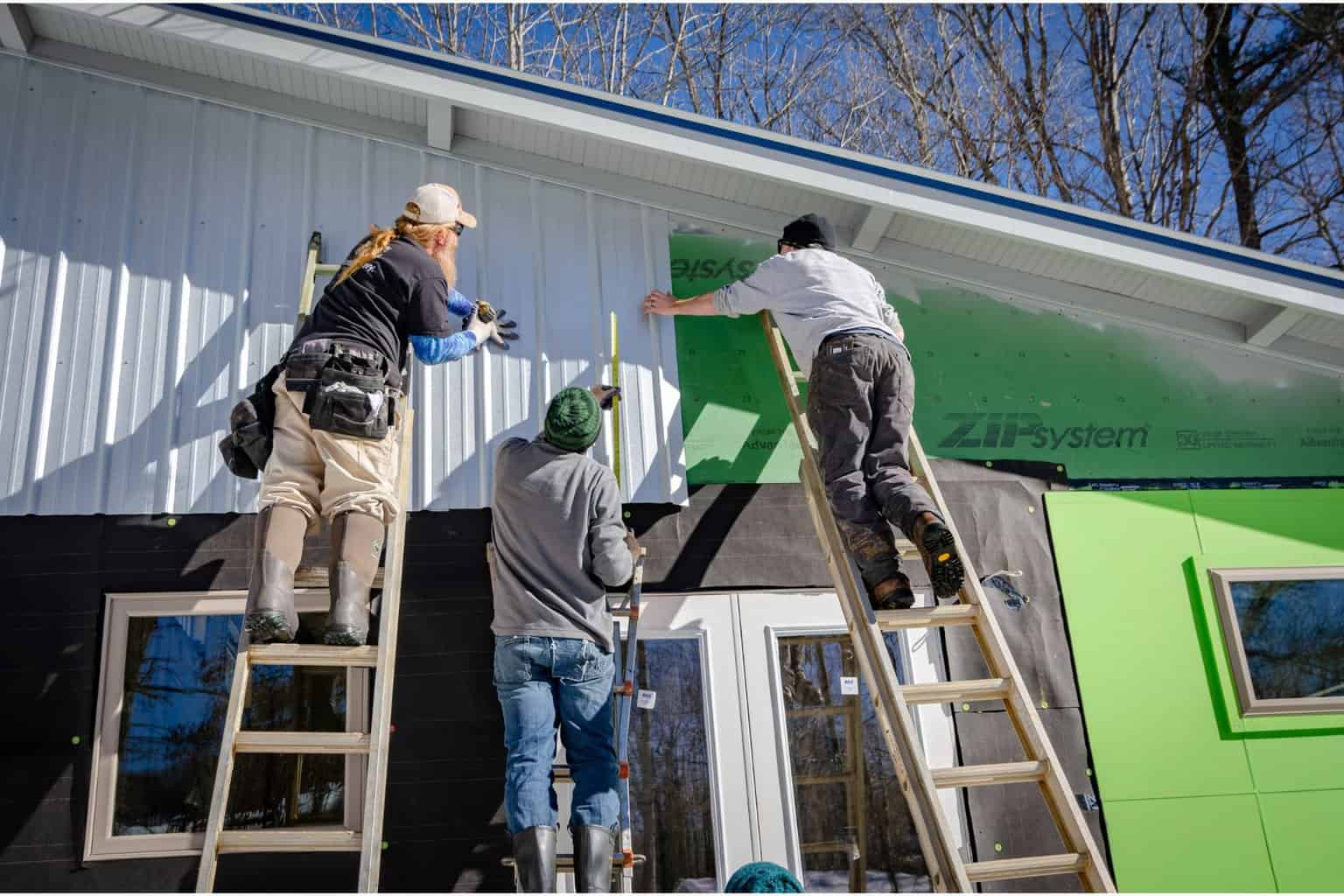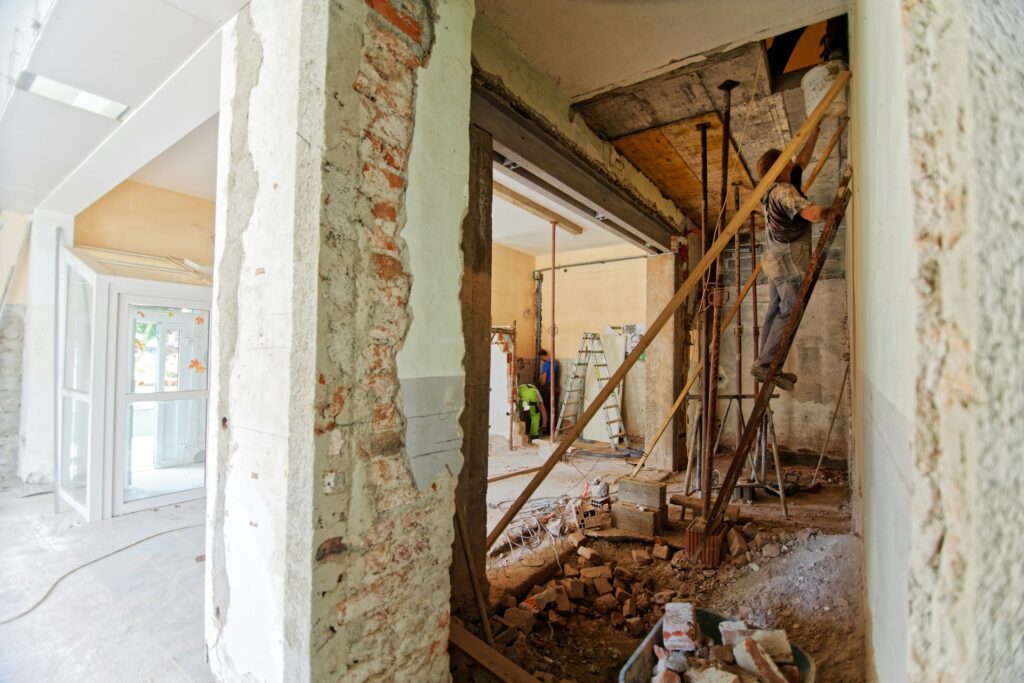
We are reader-supported. When you buy through links on our site, we may earn an affiliate commission.
Being a homeowner is all fun and games, until you need to make repairs, renovations or upgrades. Most construction work is out of the average homeowner’s depth, so they need to hire independent contractors. However, as with any other industry, there are shady characters who are willing to scam people for an easy buck. Here’s how to find a good contractor and avoid scams in eight simple steps.
1. Know the Red Flags
Unsuspecting homeowners frequently fall victim to contractors who leave them stuck with poor projects and high costs. These are the most apparent red flags that you should look out for:
- Not committing to a timeline
- No license or license violations
- Little to no online reviews
- Adding unnecessary expenses to the project
- Pushing you to sign vague documents
- Storing other tools and materials at other worksites
- Not having a warranty program for bad projects or home damage
If something seems off about a contractor’s behavior or business model, trust your instincts and keep searching. There’s no point in risking it.
2. Read Plenty of Online Reviews
Independent contractors rely heavily on reviews to build their business. They might also have social media accounts, but social media posts can be deceptive. Online reviews from third-party sources are more trustworthy.
Popular sites such as Linkedin and Google Reviews are good places to start. Once you identify a few candidates, move to niche contracting sites where you can find more details about services and fees.
- HomeAdvisor
- Angie’s List
- Upwork
- Houzz
- Guru
- Toptal
- SiteJabber
If all else fails, you can always ask your family and friends for recommendations. Use all the resources available to find an honest contractor that does quality work.
3. Compare Multiple Quotes
Narrow down your options to a handful of contractors and get multiple quotes from them. Make sure to include the important details about your home project, including the desired outcome and timeline. Getting multiple quotes allows you to compare accurate prices and determine your project’s budget.
Dishonest contractors will immediately ask for a commitment or down payment after you get a quote. Honest contractors might try to give you a sales pitch, but they will also give you time to ponder your options.
4. Meet In Person Before Committing
Email and phone call correspondence isn’t good enough for professional contractors. They’ll want to meet with you and address your questions and concerns. Scammers will do everything they can to avoid one-on-one interactions before starting the project.
Always take up the contractor’s offer for an in-person meeting. Prepare a list of questions that give you an idea of their experience and trustworthiness. How long have they been in business? What licenses or certifications do they have? Do they have the permits required for your particular project? What is their warranty policy, if they have one?
5. Request a Firm Timeline
Time is one of the most costly resources in construction. Knowing how to find a good contractor is just the first step. You need to take swift action once you make a decision. An experienced contractor will be able to provide a firm timeline with important checkpoints in the project. They will also make you aware of risks and vulnerabilities that might delay your project.
6. Consult Your HOA
Homeowners associations (HOAs) always have something to say about repairs and renovations. If you belong to an HOA and signed a contract before moving into the property, make sure you consult them before starting your project. The contractor must know about any restrictions to compile an accurate timeline, budget and list of equipment.
Your HOA might also be a valuable resource for finding trustworthy contractors. Other neighbors could have requested similar projects before, so you might end up hiring a contractor who has experience working in your community.
7. Prioritize Project Warranties
When a contractor provides a warranty, they’re essentially guaranteeing that the project will go as planned without delays or defects. Of course, a warranty doesn’t put a forcefield around your home, but it does state that the contractor will take the fall and pay for any damage. This arrangement will put you at ease and help the laborers work more efficiently.
8. Document Everything
Even if you trust your contractor, you still must document everything. Incomplete documentation will make you unable to file a lawsuit if something goes wrong. On the flip side, it will also leave you vulnerable to a malicious lawsuit from bad contractors. Make sure you get all of this information in writing:
- Your contractor’s name, business license number and contact information
- Your project’s timeline, services and costs
- Proof of your contractor’s business liability insurance
You need all the evidence you can get if you need to sue or defend yourself in court. Don’t skip over this step due to laziness. You will sleep easier at night knowing that you have everything documented and the contractor can’t scam you.
Find Your Ideal Contractor
You’ll learn how to find a good contractor solely through instinct as you become a more experienced homeowner. But for now, you need to use all the resources available to locate your ideal contractor. Read online reviews, ask friends, arrange an in-person meeting and remember to document every step in the project.










